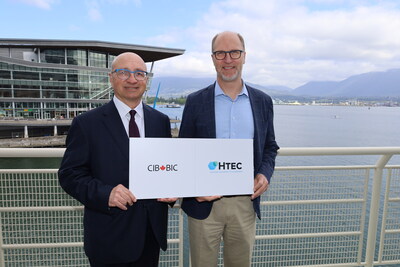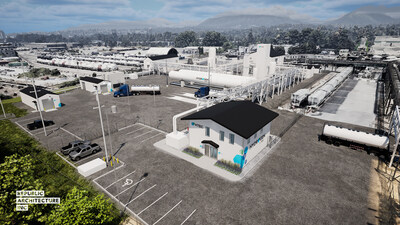CIB, HTEC launch $337M initiative to accelerate hydrogen network in Western Canada
The Canada Infrastructure Bank (CIB) has partnered with HTEC, a Vancouver-based hydrogen supplier, investing $337 million towards hydrogen production and refueling stations in Western Canada, the companies announced Friday in a joint news release.
The $337 million loan will expedite and expand HTEC’s operations in British Columbia and Alberta, enabling HTEC’s H2 Gateway program, an estimated $900-million initiative aimed at building hydrogen infrastructure ecosystems at targeted regional hubs.
The investment will bring up to 20 hydrogen refueling stations to British Columbia and Alberta, more than doubling the amount of refueling stations in Canada and supporting the transportation sector in adopting hydrogen-fueled vehicles.

The partnership represents the third investment through the CIB’s Charging and Hydrogen Refueling Infrastructure (CHRI) initiative, which is focused on expanding the private sector’s rollout of large-scale charging and hydrogen refueling infrastructure.
“New partnerships in this emerging sector will help increase domestic hydrogen production and ensure Canada is economically competitive in a decarbonizing world,” said Ehren Cory, CIB chief executive officer, in a release.
“Producing clean fuels like hydrogen right here in B.C. to replace diesel use for transportation helps to reduce harmful pollution while creating new jobs and opportunities in the clean economy,” added Josie Osborne, B.C.’s Minister of Energy, Mines and Low Carbon Innovation.
133,000 tones of emissions to be cut annually
Fourteen of the 20 new stations will enable the refueling of up to 300 heavy-duty vehicles per day, according to the release.
These refueling stations will be supported by three new hydrogen production facilities located in Burnaby, Nanaimo and Prince George to expand Canada’s low-carbon fuel supply capacity. HTEC will also build a facility that liquefies 15 tones per day of vented by-product hydrogen in North Vancouver.
HTEC estimates that more than 280 full-time jobs will be created to build, operate and support the hydrogen infrastructure, adding that once fully operational, the transportation sector’s greenhouse gas emissions are estimated to be reduced by approximately 133,000 tones annually.

The CIB’s investment builds on previous support HTEC has received from Canada to advance clean transportation, including $5 million from PacifiCan’s Business Scale-up and Productivity funding and $3 million from Natural Resources Canada’s Zero Emissions Vehicle Infrastructure Program for its 2-tonne-per-day low-carbon hydrogen production and liquid transfer facility in Burnaby, B.C.
“As outlined in our Hydrogen Progress Update, remarkable advancements have been made to the hydrogen landscape in Canada since the release of our Hydrogen Strategy in 2020,” said Jonathan Wilkinson, Minister of Energy and Natural Resources, in a release. “Today’s CIB announcement is a further testament to this federal government’s support for sustainable energy innovation in the race to net zero.”
Have your say
This is a moderated forum. Comments will no longer be published unless they are accompanied by a first and last name and a verifiable email address. (Today's Trucking will not publish or share the email address.) Profane language and content deemed to be libelous, racist, or threatening in nature will not be published under any circumstances.